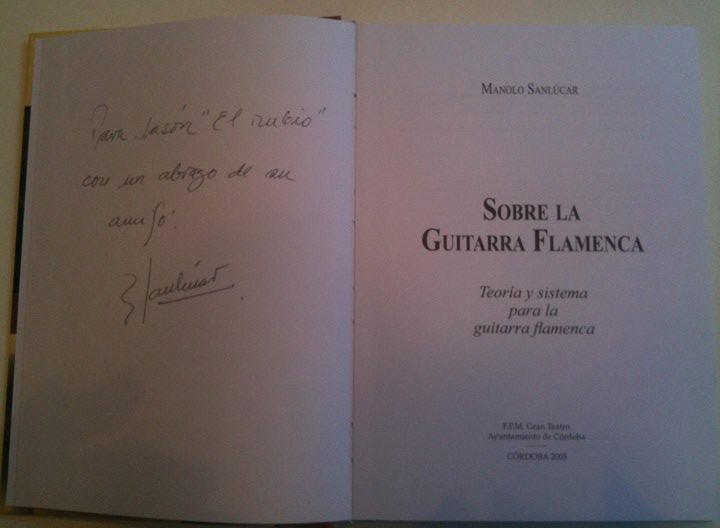|
coreydefresno -> RE: Music theory is way too complicated (Nov. 16 2010 23:10:07)
|
quote:
@ Corey: I am interested. Although I respect Manolo greatly, his theory is inadequate to explain flamenco in any meaningful way. Something that he acknowledges and then ignores is that the modo dorico contains no sharps or flats. How does one then talk about the tonic chord? Some Greek schools used theory (math) as a path to spiritual and mental development and were not interested in explaining actual practice. How, therefore, can we use it to describe a practice that emerged two thousand years later?
I already responded to the part about the tonic chord having the G#, in part, what I failed to add was that when a singer sings the final note, alone, with no accompaniment, the G#, IS, present, in the harmonic series, and is amplified by the room, or by the PA and the room. So the guitar must respond.
And a very important side-note about Manolo's system of application and modulation of Dorico Griego to all seven flamenco tonal centers (E, F#, G#, A, B, C#, and D#), and others such as D, and G. He was accompanying Carmen Linares in preparation for recording Locura de Brisa y Trini and as he followed her by necessity with a single palo to many different keys, he found a modulatory scale, Greek Mixolydian, and a chord that resulted from it (half-diminished) and how it enabled him to modulate anywhere. He begins all of his Fantasia-like entradas with a long improvisation on this scale and chord, and uses Whole-tone also (from the cantes Levantes) and then goes wherever the singer takes him by necessity. And because it is necessary for the guitars to modulate in this way when accompanying Carmen Linares, then it IS valid in flamenco. He adds that it is HIS system, the HE created, and it is Tierra Nueva in the world of flamenco. That is Manolo, knowing all that I know about music, I follow him. It is not for everyone, not right away, i takes time to sink in, and even then, half the people don't think he is correct, in fact some think he is crazy, I don't thinks so, but Manolo tells us, "If you are not a little bit loco, you will create nothing"
I think that should be our first focus, "Are we a little bit loco?" Then theory. Crazy first, theory second :) This is why some of us who know a little bit of theory and are a little crazy, will be just fine :)
Un cordial saludo,
Corey
|
|
|
|

